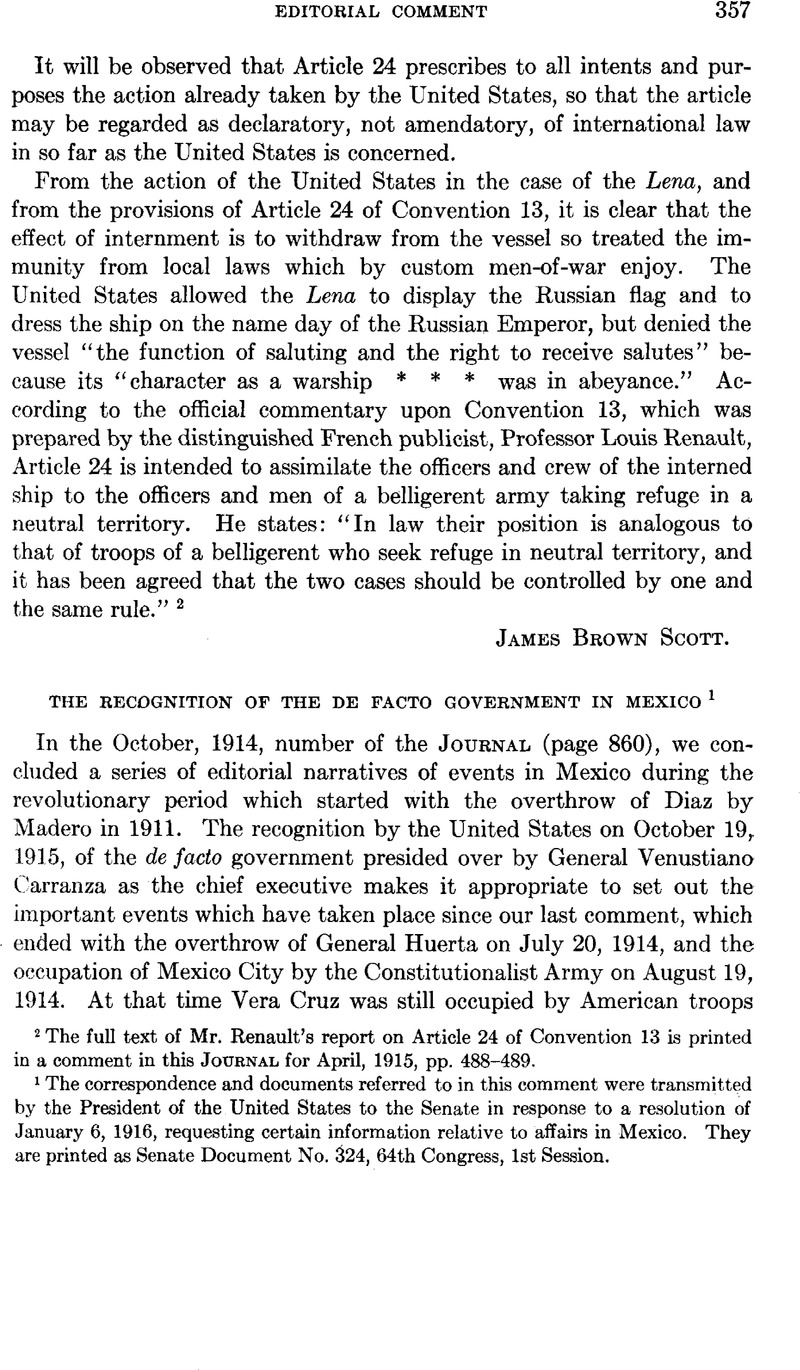No CrossRef data available.
Published online by Cambridge University Press: 04 May 2017

The correspondence and documents referred to in this comment were transmitted by the President of the United States to the Senate in response to a resolution of January 6, 1916, requesting certain information relative to affairs in Mexico. They are printed as Senate Document No. 324, 64th Congress, 1st Session.
2 The plan of Guadalupe, signed by sixty-four officers of the troops of the State of Coahuila on the 26th of March, 1913, contains the following articles:
“1. Gen. Victoriano Huerta is hereby repudiated as President of the Republic.
“2. The legislative and judicial powers of the federation are also hereby disowned.
“3. The governors of the States who still recognize the federal powers of the present administration, shall be repudiated thirty days after the publication of this plan.
“4. For the purpose of organizing the army, which is to see that our aims are carried out, we name Venustiano Carranza, now governor of the State of Coahuila, as first chief of the army, which is to be called constitutionalist army.
“5. Upon the occupation of the city of Mexico by the constitutionalist army, the executive power shall be vested in Venustiano Carranza, its first chief, or in the person who may substitute him in command.
“6. The provisional trustee of the executive power of the Republic shall convene general elections as soon as peace may have been restored and will surrender power to the citizen who may have been elected.
“The citizen who may act as first chief of the constitutionalist army in the States, whose government might have recognized that of Huerta, shall take charge of the provisional government and shall convene local elections, after the citizens elected to discharge the high powers of the federation may have entered into the performance of their duties as provided in the foregoing bases.”